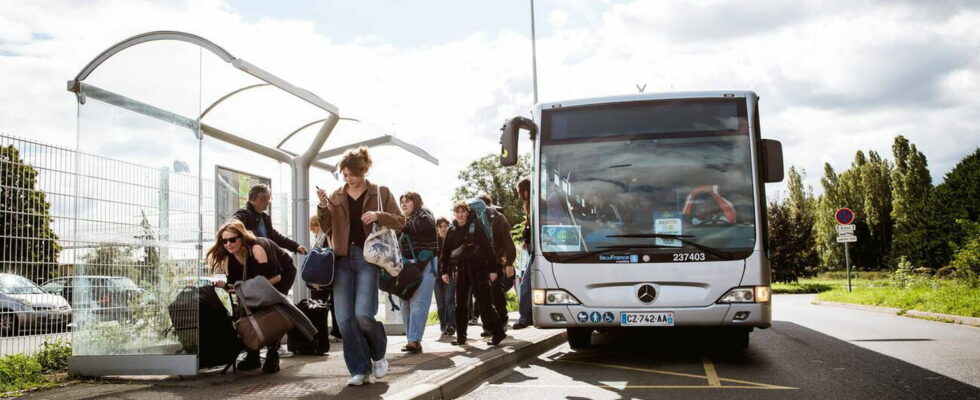The objective of the Minister of Transport is to help the French move from individual transport to public transport. “Express coaches” would be the solution.
The question of mobility has several issues in France. The French must be able to travel without it having too much impact on their budget, the travel time between their home and work should not be too long and the ecological impact of these trips should be as low as possible. For this, the public transport offer is developing in the major cities of France, with buses, metros and trams. There are also TGVs, TERs and intercity trains which allow travel without a private car. But this does not always address the issue of practicality. In an interview given to West FranceFrançois Durovray, Minister of Transport, explains that “the priority of this government in terms of transport is long daily journeys”, referring to “15 million French people in ‘mobility precariousness’ today, of whom 10 million have more 50 kilometers to cover every day. The minister then explains the problem: “Where there is no public transport network, you make [les trajets] by car. We must therefore develop alternatives to the individual car.”
François Durovray denounces the fact that we have “forgotten those who live on the outskirts of large urban centers” and wants to “bridge the gap that separates France from the big cities of the suburbs and rural areas”.
What consequences for municipalities?
The Ministry of Transport is no longer attached to that of Ecological Transition, but to that of Partnership with the territories, François Durovray says he wants to help elected officials, and not impose on them, to organize a network of “express coaches”. This service offering would not compete with trains, according to the minister: “There is no question of opposing rail to road, which are complementary. I want more trains and more coaches.”
Concerning the ecological aspect of this new transport network, the minister takes the example of carpooling, ensuring that these “express cars” will make it possible to transport a large number of people who will no longer need to use their individual car on a daily basis. He also believes that this would reduce traffic jams on the road, which would therefore reduce carbon emissions and also travel times.
For what type of travel?
François Durovray explains that these coaches would be used for journeys “around 30 to 50 kilometers”. He also emphasizes the difference between these “express coaches” and the buses that are already running: “In a coach, you have a seat, light, a USB socket, wifi, you can read, work, sleep and you will be able to have, tomorrow, a guaranteed transport time thanks to the development of reserved lanes on certain sections. The minister takes certain lines as an example, such as “the Aix-Marseille [qui] carries 2.5 million passengers per year.
At what price?
But a new public transport network costs a lot of money. On this subject, François Durovray says he is “open” to its financing by the State under three conditions. He first wants the service to be paid for, without specifying the exact price of a ticket or subscription. Then, he wants “the issue of long daily journeys between home and work” to be addressed. Finally, the minister would like “to dialogue with the companies which contribute to the financing of transport”. The development of these lines could be done “in six months or a year”, according to him, “from the moment we agree”.
François Durovray speaks of an “effective measure for purchasing power”, ensuring that “for the lowest 10% of households”, transport “represents 21% of income”. “Between car, insurance and gasoline costs, you quickly reach 500 euros per month,” he assures. Full of confidence, the minister “sets an appointment in the first quarter of 2025 for the presentation of a national express coach plan”.
